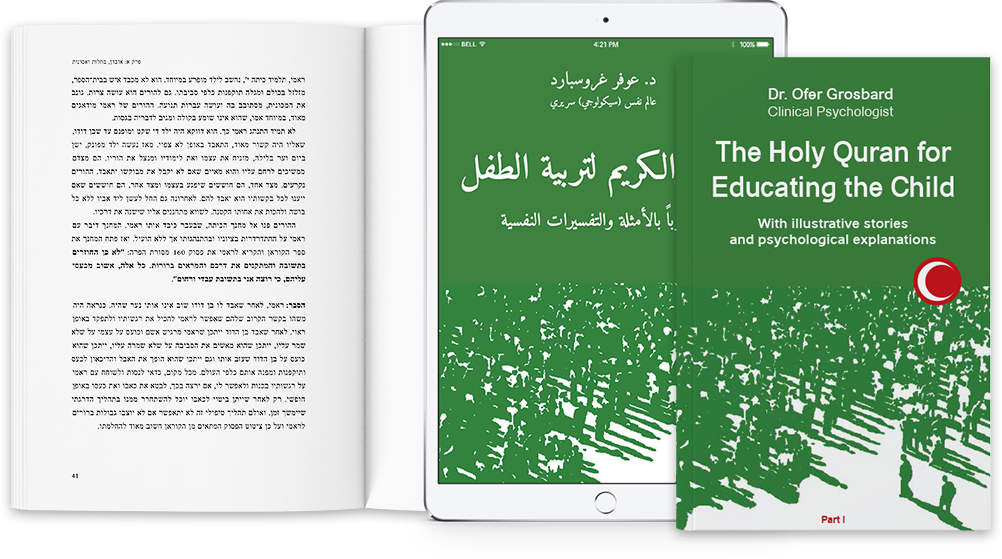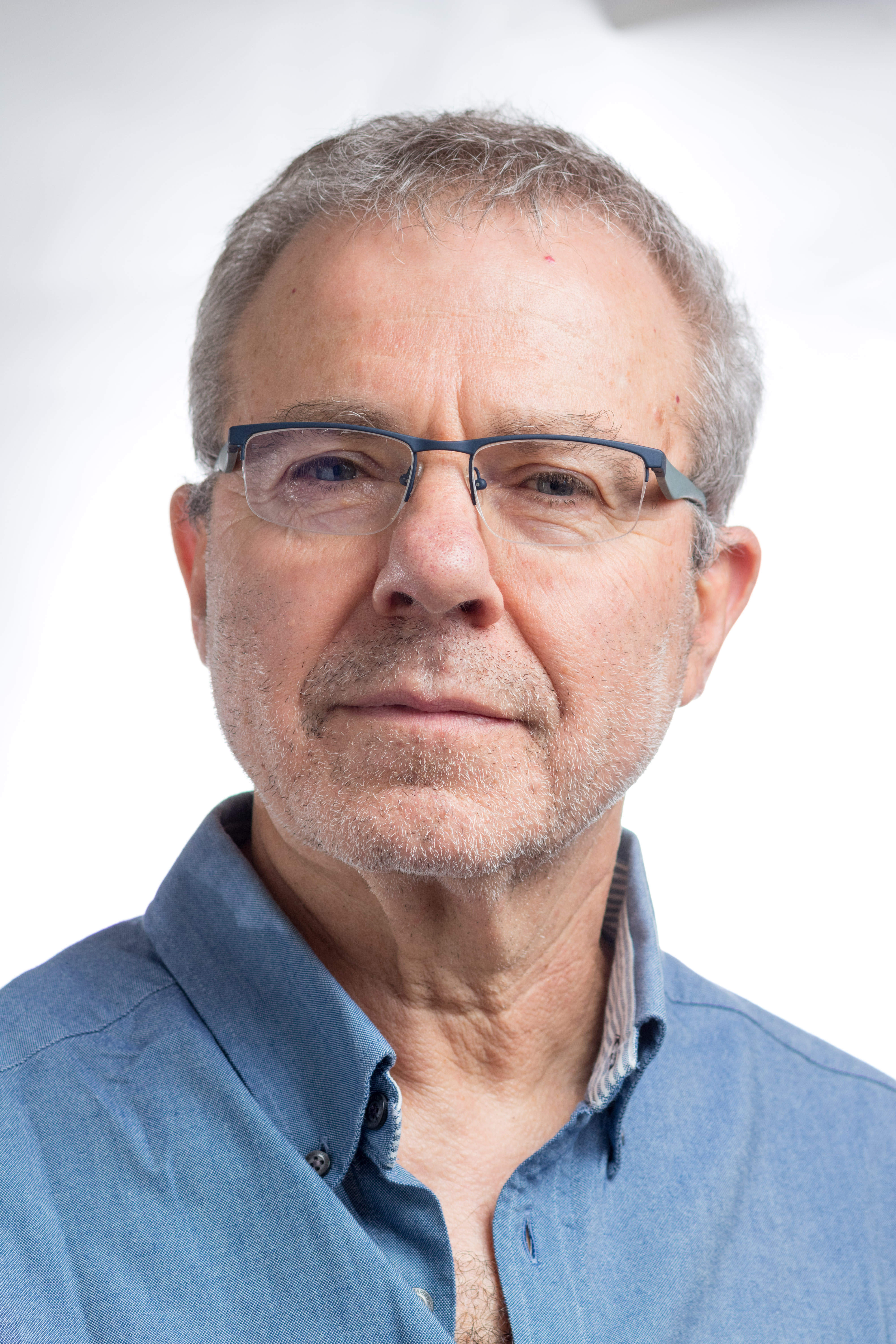Parenting according to the Koran

Mr Grosbard, how do people use Quranet?
Imagine two children are fighting at school. The teacher will try many different approaches in an attempt to stop them, but usually it won't work. Yet, when he reminds them of a phrase from the Koran, such as a verse saying that you have to respect your friend, things change. Arab teachers frequently tell me that once they introduce a phrase from the Koran, the conflict can be resolved.
Verses from the Koran are very powerful. They exhort individuals to take responsibility, tell the truth and respect the other. Children believe so deeply in the Koran that one phrase can have a huge impact. We are talking about a society where you cannot work with psychological tools. You cannot say to the child that they must be deeply hurt and invite them to talk about how they feel.
Is Quranet intended as an instrument for resolving conflict in the home and at school?
It is difficult to use psychological tools in Arab society because they work against its traditional social orientation. In the Arab world, rather than focussing on internal psychological processes, there has always been a consistent focus on external guidance, which is why phrases from the Koran work.

The Koran is an integral aspect of Arab society but parents frequently omit to use it for everyday educational purposes. On the other hand, they don’t have any psychological tools either, so when it comes to resolving conflicts they can feel helpless. Providing them with a phrase from the Koran can be very helpful.
What about problems like family violence. Can Quranet help in preventing such situations from arising?
No doubt. Many phrases in the Koran emphasise the importance of respecting your children. Not only should children respect their parents, but parents also need to respect their children. This is something the Koran addresses in a number of different verses. By contrast, there is no requirement at all in the Koran for women to cover themselves totally, leaving only the eyes showing. This is something that may be demanded by culture, but it is not in the Koran. Culture can be more severe than religion and is often more problematic.
For example honour killings are not according to the Koran. Thankfully, with the help of Quranet, it is possible to tell people don‘t do it, it is against your religion. Of course, these are just a couple of examples. I invite people to open the Quranet book or go to the website and find the phrases that match their situation. It is open to everyone – yet another reason why it is such a powerful instrument.
At the beginning some sections of the Islamic community were reluctant to use a tool developed by a Jew. Has this been overcome now?
I think people have become a little more used to the idea. Firstly, many critics rejected Quranet out of hand, without knowing what it was. If it was written by a Jew, then why bother to even read it, many said at the outset. Nevertheless, those who made the effort to start reading it realised that it is simply a tool intended for good. Moreover, it has also been approved by well-known sheikhs and scholars in the Islamic world.
Today, I get emails from all over the Arab world. Many write that Quranet is a great thing. A Jew did it, ok, we should have thought of it ourselves, but still, it‘s a good thing. So slowly, slowly acceptance is growing. But still, if you take six or seven comments from the web about Quranet, there will be at least one saying, but it was done by a Jew. Others ask me when I am going to convert to Islam…
You also had problems finding a publisher for the Quranet Arabic edition. In the end it was published by Amazon.
Indeed. After someone kindly translated the book into Arabic for free, I really wanted it to be published. But the publishers I approached were afraid of doing so. It was not long after the Paris attacks in 2015. They thought that Arabs or Muslims wouldn‘t buy a book written in co-operation with a Jew. So they either didn‘t reply to my request or used all kinds of excuses.
How is the project viewed in Israel now?
The Jewish community is quite proud of the project, that is, apart from extremists from the religious right. For them the Koran is just worthless. But that is a minor issue. The foreign ministry promotes the co-operation between Jews and Arabs; the Israeli Presidential Conference chose to showcase and recognise the project in 2008.
Most Arabs in Israel like Quranet, too. For example, the Bedouins in the south of Israel who are very devout and still live a traditional life with their sheep and camels are very keen on Quranet. They invited me to give a lecture once, telling me: You might not know it, but you are a celebrity here, everyone knows you. For me that was very exciting.
You started Quranet in 2008 after some of your students of Bedouin descent told you they needed something from the Koran for their work because western psychology does not give the right answers for many situations. What about their experience ten years on?
Most of them are school counsellors today. They say that Quranet has provided them with the means to deal with many situations that previously seemed intractable. Quranet is used in most Arabic schools in Israel. But I get requests from all over the world. From Jordan, Saudi-Arabia, Egypt, even from Germany. People write about their problems with their children or students and ask which phrase from the Koran I would recommend.
What problems are the most common?
Recently, it is rebellious children. With everything that has been taking place in the Arab world many youngsters are rebelling against their parents. They say, our parents are very old-fashioned, they don‘t understand anything, they are very backward. Parents ask me what they should do, their children are turning a deaf ear. As a clinical psychologist, I find myself conflicted. On one hand, young people shouldn‘t listen to their parents sometimes. They need to be rebellious because they have to learn to be independent. But these parents are coming from a traditional community perspective, which expects children to always obey their parents. So what I look for a phrase in the Koran that might fit …
But the Koran does not tell young people to become independent from their parents.
That’s true, but I pick phrases that express a potential for compromise. Phrases saying that parents should respect their children. Because if you are supposed to respect your child at least you should listen to what she or he is saying and thinking. So that‘s the conversation I have with parents or teachers and this dialogue is very important. Dialogue helps to calm things down. We should listen to what our children want to say. Culture can be very rigid on this point, but the Koran is not. The holy book is more flexible, which is why it can be so helpful.
But there could still be conflicting views between psychology and the Koran.
Culture is always stronger. I learnt that the hard way. As a young psychologist I had a few Arabic patients. One of them was a woman who lived together with her mother-in-law, which happens a lot and the latter made the life of the younger woman very difficult. So I asked my patient, why do you listen to her at all? I tried to encourage her to be independent, but that created a lot of problems within the family and just made things worse. So I have learnt to respect culture and not to go against it – in the end, you only do more damage than good.
I personally am in favour of independence, but I try to occupy the middle ground. The Koran says you should respect one another. I try to soften my own attitudes and if I succeed by 10, 20 or 30 percent that‘s a lot. I am not about to try and convert people to Western culture.
Interview conducted by Claudia Mende
© Qantara.de 2020
Ofer Grosbard, born in Israel in 1954, comes from a German-Lithuanian Jewish family. He is a clinical psychologist and psychoanalyst and author of several books, including "Israel on the Couch" (2001) and "Licence for Insanity" (2003). Grosbard lives in Haifa.
